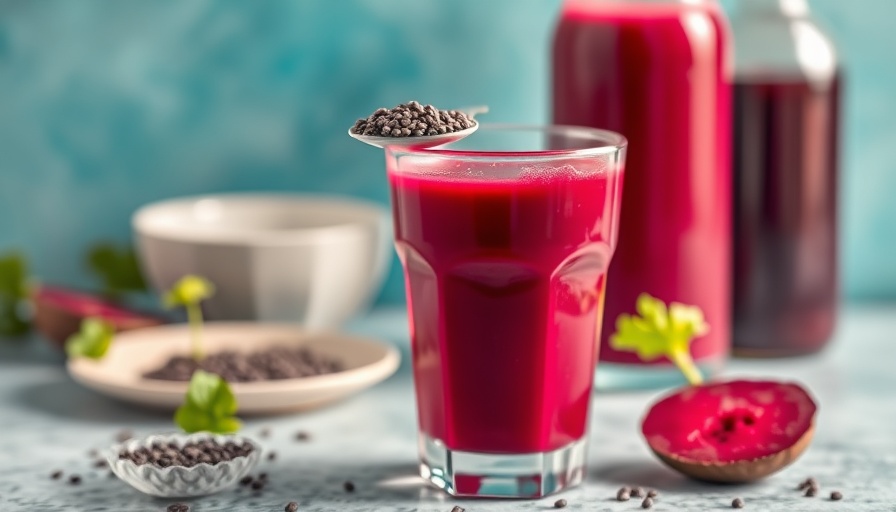
Unlocking Health: The Power of Beetroot Juice and Chia Seeds Together
Have you ever considered blending delicious and nutrient-rich ingredients like beetroot juice and chia seeds? This dynamic duo is gaining traction among health enthusiasts for its powerful benefits. Beetroot juice, renowned for its vibrant color and earthy flavor, delivers a wealth of nutrients. When combined with chia seeds, a superfood overflowing with omega-3 fatty acids, fiber, and protein, they create a nutrient bomb that supports heart health, boosts energy levels, and enhances overall wellness.
The Heart Benefits of Beetroot Juice
Beetroot juice is packed with nitrates, which are converted into nitric oxide in the body. This compound helps widen blood vessels, promoting better blood flow and lowering blood pressure. Heart disease is a leading health concern, and incorporating beetroot juice into a heart-healthy diet can give your cardiovascular system a significant boost.
Chia Seeds: Tiny but Mighty
Chia seeds may be small, but they boast impressive health benefits. Rich in antioxidants, fiber, and protein, they support digestive health and can help stabilize blood sugar levels. Adding these seeds to your meals can provide sustained energy and help you feel fuller for longer, making them an excellent choice for those on a journey to maintain a balanced nutrition.
Moreover, their ability to absorb water can help keep you hydrated, particularly when mixed with juices like beetroot.
How They Work Together for Wellness
The combination of beetroot juice and chia seeds is not only tasty but also synergistic. While beets ramp up energy levels and support heart function, chia seeds provide essential healthy fats and fiber, enhancing their effects. This duo is especially fantastic for those seeking to adopt a holistic nutrition approach. Moreover, they are both considered part of clean eating, ensuring you get the benefits of organic food without added sugars or preservatives.
Practical Tips for Incorporating This Power Pair into Your Diet
To reap the benefits of beetroot juice and chia seeds, it’s simple to incorporate them into your daily meals. You can blend them into smoothies, sprinkle chia seeds over salads, or stir them into yogurt for an energizing snack. This allows you to enjoy both functional foods while promoting gut health and overall wellness. Don’t forget, sustainable eating is about making choices that benefit your body and the planet!
Final Thoughts
Using beetroot juice and chia seeds together is not just a tasty choice; it's a health-enhancing one. For patients and healthcare professionals alike, understanding the gut health benefits and how to easily implement these superfoods into a whole foods diet is essential. If you're curious about creating special meals for optimal health, exploring recipes further can yield delicious insights.
Call us at 984-238-6164 or email us at tom@mywellnesstrain.com to learn more about healthy eating strategies!
 Add Row
Add Row  Add
Add 




Write A Comment